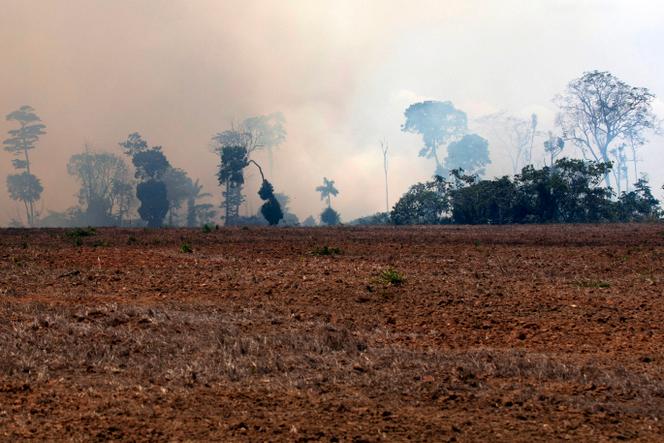


In an investigation published on August 23 which traced the origin of meat sold by French wholesale retailer Carrefour, the investigative magazine Reporter Brasil discovered that one of its suppliers, the Frialto group, was sourcing cattle from the breeder Bruno Heller.
Considered by the police to be "the largest destroyer of the Amazon biome ever investigated," he is suspected of illegally clearing 6,500 hectares of forest in Novo Progresso, in the northern state of Pará – twice the size of Brussels. In the region, the Heller family is well known to environmental authorities: Since 1990, the farms in its possession have accumulated 43 fines, totaling 27 million réis (€5.12 million), for cases of illegal deforestation and the purchase of livestock from protected areas.
How did this escape the control of the country's leading food distribution group? According to the Brazilian media's investigation, the cattle were the subject of a "laundering" operation by Heller. First raised on one of his farms sanctioned for illegal deforestation, the cattle were then transported to two farms officially owned by his daughter, Tatiana Heller, which were in compliance with environmental standards. "A few days after the transfers, some oxen were sold to Frialto's Matupá unit [in the state of Mato Grosso], which supplies Carrefour," said Marina Rossi, one of the journalists who was a part of of Reporter Brasil's investigation.
In an email to Le Monde, the Carrefour group denied, however, that it "purchased meat from the farms mentioned" in the investigation. "The company's association with criminal practices is false and irresponsible," the group said, assuring that it had "a certification and image-tracking process via satellites to analyze the socio-environmental compliance of the acquisition of 100% of the fresh meat sold" in its supermarkets.
Nonetheless, this is not the first time Carrefour has been accused of participating in the deforestation of the Amazon. On September 5, 2022, the environmental NGO Mighty Earth launched the "Carrefour Nous Enfume!" campaign on social media. It denounced the fact that, despite Carrefour's commitment to stop buying meat from "critical zones" by 2030, the company continued to buy from two slaughterhouses belonging to the Brazilian multinational JBS, which sourced their meat from farms that deforested indigenous territory in the state of Rondônia, in northwestern Brazil.
Following Mighty Earth's action, Carrefour promised to stop buying from the two JBS suppliers. But, according to the NGO, these commitments have not been kept. "We remained vigilant and found that Carrefour was still selling meat from these slaughterhouses in its supermarkets in Brazil," said Boris Patentreger, Mighty Earth's director in France.
You have 36.97% of this article left to read. The rest is for subscribers only.
